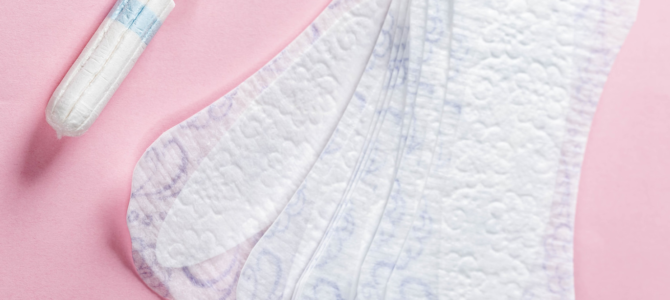
One of the more confusing aspects of the transgender movement is the ever-changing expectations of what gender and sex are supposed to mean. While left-wing advocacy organizations chant “Transwomen are women!” declaring biological men to be women, as if that alone ends the discussion, what being male or female means to transgender people remains a mystery.
In a recent NBC News article titled, “For transgender men, pain of menstruation is more than just physical,” Kenny Ethan Jones, a female-to-male transgender activist and model, detailed various contradictions between gender identity and sex in daily life. Describing the purchase of feminine hygiene products, Jones said, “Having a period already causes me a lot of gender dysphoria, but this dysphoria becomes heightened when I have to shop for a product that is labeled as ‘women’s health’ and in most cases, is pretty and pink.”
With this one sentence, Jones affirms that menstruating conflicts with her gender identity as a man. But later in the discussion, Jones argues that as the 2018 face of a U.K. menstruation ad, “People are still reluctant to [sic] the idea that it’s not only women that experience periods.”
Cognitive Dissonance Within Transgender Ideology
If having a period is not exclusively a biological function of women, why would experiencing it cause dysphoria? One of the primary criteria in the DSM-5 for diagnosing gender dysphoria is, “A strong desire to be rid of one’s primary and/or secondary sex characteristics.” How is it that advocates want universal acceptance of transmen and nonbinary people embracing a primary sex characteristic? It seems they expect a conditional understanding of what gender dysphoria really means for the individual.
Rodrigo Heng-Lehtinen, deputy executive director of the National Center for Transgender Equality, continued this line of reasoning, contending that men’s restrooms should stock free menstruation products. He argued, “You might have this monthly terror where you’re concerned that if you go to the restroom, and someone sees a tampon, then they’re going to start asking questions.”
Insisting the mere sound of opening a tampon or throwing the packaging away in the restroom could expose the person to harassment and violence, he said, “This is a health care product, so it should be widely available. I think everyone in society is better off if they are more available for cheaper prices or for free in more places.”
Two more criteria for a gender dysphoria diagnosis include a strong desire to be treated as the other sex and a strong conviction that one has the typical feelings and reactions of the other sex. How would making menstruation products more widely available in men’s restrooms accomplish the goal of effectively blending in as men? There is a conflicting set of goals at play: Transgender activists want to be treated exactly as the sex with which they identify while simultaneously demanding the rest of society change the entire concept of what men and women are to accommodate them.
Continuing this conflict of messaging, while transgender activists routinely refer to hormone treatment as medically necessary, another article titled, “Trans dads tell doctors: ‘You can be a man and have a baby’” effectively argued the opposite. Decrying the misinformation and ignorance of the medical profession toward transgender people, a transgender couple became pregnant despite their doctor’s concerns.
The article lectures, “One of the most persistent myths transgender men [biological women] and nonbinary people hear from doctors is that testosterone has sterilized them, experts say. While testosterone generally blocks ovulation, trans men can get pregnant while taking it, particularly if they are not taking it regularly.”
But again, taking testosterone is considered necessary for treating gender dysphoria. There appears to be a disconnect between the importance of testosterone for transmen (biological women) and the apparent desire for female reproduction to be considered common and expected within the same population. Research indicates unintended pregnancy occurs in up to 30 percent of transgender men (biological females).
However, Justin Brandt, an assistant clinical professor in the Department of Obstetrics, Gynecology, and Reproductive Sciences at Rutgers Robert Wood Johnson Medical School, states, “[P]regnancy, which is regarded as a feminine condition, forces these men to almost fully transition back to their sex assigned at birth, which can worsen gender dysphoria.”
This depression and anxiety over identity is further confirmed in other studies on pregnancy in transgender men. “Internal challenges were typified by the conflict between one’s identity as male and or gender variant and ‘social norms that define a pregnant person as woman and a gestational parent as mother.’” In another in-depth look into the experience of a pregnant transman in the U.K., “Trans men are still not being given the right information about their options, including how to carry their own children safely. We’re told we can’t, and it’s assumed we don’t want to.”
Inconsistent Expectations for Transmen and Transwomen
When we are told to accept transmen, or biological women, as men, we will naturally become frustrated at the argument that our ignorance or bigotry makes us believe transmen wish to actually live as men. It seems gender identity advocates wish to change the definition of what a man is while also demanding society accept that biological women are literally men as we understand them today. Men can menstruate and become pregnant but also require acceptance as men in all traditional male activities and social roles. It simply does not work.
The standards are inconsistent between transmen and transwomen as well. Transmen, or biological women, are expected to retain their female bodies and reproductive processes while adopting the social recognition of men, but transwomen, or biological men, are argued to have absolutely no physical advantage over women in sports, for example. Transmen menstruate, but transwomen are identical in every way to natural women.
Beyond the conflicts in messaging and arguments regarding transgender acceptance and rights, we see something more profound and frustrating underneath these stories. These women are tortured by the gender duality entirely imposed onto them through societal pressures. When outside the spotlight of researchers or media, they find navigating daily life difficult and contradictory. As our first example, Kenny Jones told us the experience of having a period is itself traumatic to Jones’s sense of identity.
Society Is to Blame for the Struggles of Transmen
While the easy leftist argument is that society is to blame for not accommodating transgender men with feminine hygiene products in male spaces or not viewing pregnant men as normal and common, the real root of the issue comes down to the movement. Women and girls are told they must both embrace and reject their bodies simultaneously. They are celebrated as men while their biological desire to be mothers is rationalized as a real desire to be fathers. They live in bodies that constantly betray who they are told they must be in order to be themselves.
It should be understood that biological women do not struggle with their bodies in such ways, and men do not obsess over these issues. These transgender women are trapped by mental illness that only heightens in intensity the more they fight their natural instincts and desires. The only people to whom they can look for help work too hard to sustain the fantasy to be of any help at all.
Researchers found that 44 percent of pregnant transgender men avoided traditional medical care, and 17 percent gave birth outside hospitals. The internal conflict of believing oneself to be a man, looking like a man, and being pregnant in public appears to be too much. While transwomen are championed as women, transmen seem to be caught somewhere in the middle, demanding society be responsible for changing what it means to be a man to supposedly make life easier for them.









